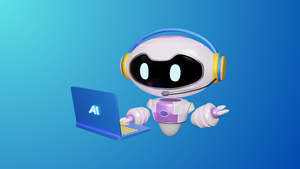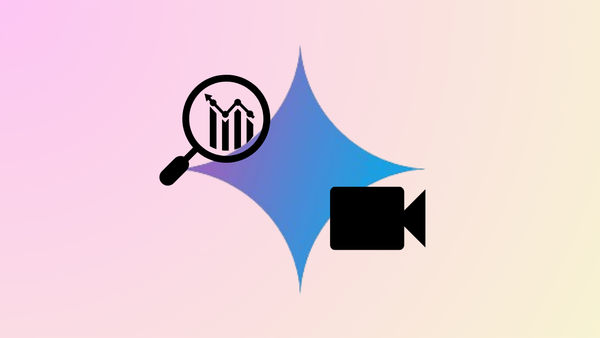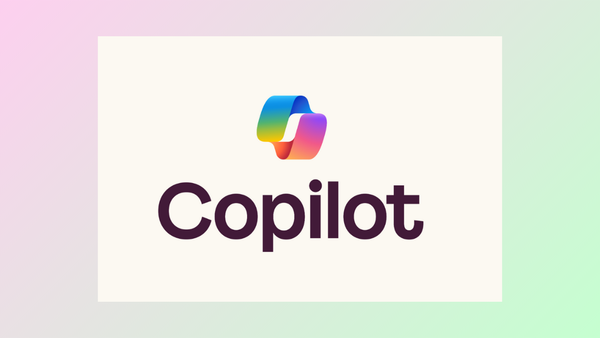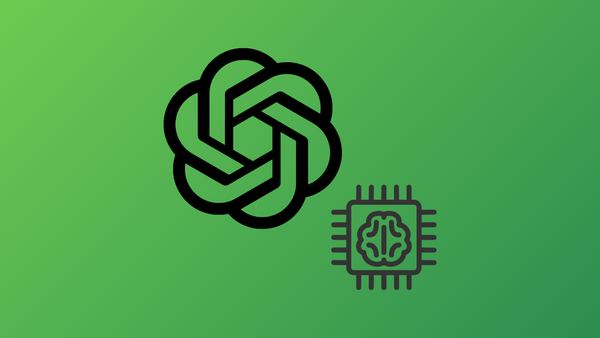Artificial intelligence (AI) is transforming how professionals across industries work. It has become an indispensable tool for professionals that can boost their productivity and efficiency if embraced in their day-to-day.
2023 saw the rapid emergence of AI, but as we step into 2024, the capabilities of AI will expand even more, offering innovative solutions to complex challenges. If you haven't already boarded this train, it's high time to do so, as there will be even more opportunities for professionals to utilize this technology. If you're still wondering how, here are 24 ways you can use AI this year to get the boost you need in your workflow.
- Writing and Editing: Professionals can leverage AI writing tools to automatically generate drafts or enhance their own writing through grammar corrections, context-based suggestions, and more. AI can aid with writing everything from business reports to emails to screenplays.
- Transcribe Meetings: You can use AI services, like Fireflies, Otter AI, Bluedot, etc., that can listen in on meetings and automatically create summaries highlighting key discussion points, action items, and decisions to automate your workflow.
- Automate Repetitive Tasks: AI can automate repetitive tasks such as scheduling, data entry, and email responses, freeing up time for professionals to focus on more complex and creative work. Doctors, accountants, analysts, and other professionals can use AI data entry tools to automatically transfer data from forms and documents into databases and applications, saving vast amounts of time.
- Project Management: AI project management tools can assemble project plans and schedules based on goals, budgets, and resource constraints inputted by professionals. The tools track progress and adjust schedules when needed.
- Enhance legal services: Lawyers and paralegals can use AI to automate legal research, analyze contracts and legal documents to improve review efficiency and predict legal outcomes. AI can even flag ambiguous language for further examination.
- Optimize Marketing Campaigns: AI can analyze customer data to identify high-value audiences for marketing campaigns and create personalized marketing campaigns, predict customer behavior, and optimize ad targeting. It can even create customized digital content tailored to the target demographics.
- Human Resource Management: Human resources professionals can use AI to source, screen, and rank candidates to find top talent more effectively. It can even help in scheduling and conducting initial screening interviews. AI interview analysis tools can extract key insights too.
- Enhance Education: Teachers can benefit hugely from incorporating AI in their workflow. It can personalize learning experiences based on individual student needs and performance. You can also leverage AI to provide feedback and improve student engagement by using tools such as Curipod.
- Predictive Sales Analytics: Analyzing sales data with AI can help sales professionals focus their efforts on leads most likely to convert and uncover new cross-selling opportunities with existing customers.
- Financial Risk Modeling: AI programs can analyze portfolios and market conditions to highlight financial exposures, simulate stressed loss scenarios, and identify appropriate hedges.
- Demand Forecasting and Supply Chain Optimization: For product managers, supply chain specialists, and operations leads, AI can extrapolate demand trends from past data to predict future demand, optimize inventory levels, and improve logistics planning, leading to more efficient and cost-effective supply chain management.
- Intelligent Calendar Optimization: AI-powered calendar assistant tools can help professionals schedule meetings, appointments, and events more efficiently by automatically identifying open times across calendars, factoring in prep time for meetings, travel time between locations, and even the impact of a given scheduling choice on focus time. This saves professionals hassle while optimizing their calendars.
- Data Analysis and Interpretation: By revealing patterns, correlations, and trends across massive datasets, AI analytics tools empower professionals to analyze data more powerfully, gaining strategic insights for improving decisions and performance. It can augment human analysis with continuous learning from new data. Professionals in fields like marketing, finance, and research can especially benefit from AI by gaining insights more quickly and accurately.
- Improve Customer Service: AI-powered chatbots can offer 24/7 automated customer support via messaging apps, websites, and phone calls. By analyzing customer queries, chatbots can answer repetitive questions, route issues to the right departments, and alert human agents of urgent cases needing intervention. This boosts support quality and efficiency.
- Advanced Healthcare Diagnostics: In the healthcare sector, AI tools assist professionals in diagnosing diseases more accurately and quickly, using algorithms that can analyze medical images and patient data. AI can be used to diagnose diseases, monitor patient health, and develop personalized treatment plans to improve healthcare.
- Real-time Translation: AI makes it possible to instantaneously translate among dozens of major languages during meetings, presentations, or collaborations with international clients and colleagues.
- Content Creation: Armed with AI, professionals can rapidly generate blogs, social posts, landing pages, emails, and other marketing copy tailored to products, services, or campaigns. It can not only assist in generating written content but also graphics, and videos.
- Enhance Scientific Research: AI can be used to enhance scientific research by analyzing large datasets, predicting outcomes, and identifying new research opportunities.
- Automate Financial Tasks: AI can be used to automate financial tasks such as bookkeeping, invoicing, and tax preparation.
- Data Visualization and Reporting: AI programs excel at auto-generating dashboards, graphs, charts, and reports to help professionals easily track KPIs, understand changes and trends in data, or present findings to stakeholders.
- Real Estate Market Analysis: AI can be used by professionals in real estate for analyzing property data, predicting market trends, and optimizing property management.
- Cybersecurity Threat Detection: AI can monitor network traffic and identify potential cybersecurity threats more efficiently than traditional methods.
- Financial Fraud Detection: AI algorithms can detect patterns indicative of fraudulent activity, helping financial institutions prevent losses.
- Talent Development: Based on analysis of skills gaps, AI recommendation engines can suggest personalized learning paths to help professionals skill up rapidly.
The possibilities for using AI to work smarter and elevate performance are endless. From enhancing customer experiences to revolutionizing healthcare diagnostics, AI's versatility and efficiency make it an invaluable asset for professionals striving for excellence and innovation. As AI technology continues to evolve, its integration into daily professional practices is not just a trend but a necessity for staying competitive and relevant in a digitally driven world.










Member discussion